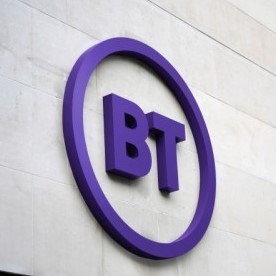Artificial intelligence developed by US Big Tech will help to run the UK operator in the years ahead.

Fittingly, this year's Mobile World Congress was more or less bookended by deals between operators and their public cloud frenemies. As the show opened, Finland's Elisa emerged as a new consort of Google, gushing about the Internet giant's artificial intelligence (AI) and cloud expertise. This morning, the UK's BT plopped down alongside Elisa in Google's ever-expanding telco harem.
Unlike Elisa, it is not (yet) considering whether to host network functions inside Google Cloud. BT's executives have publicly resisted this type of arrangement without going so far as to rule it out entirely in future. "It doesn't make sense to inject someone else's cloud platform into our buildings," said Mark Henry, BT's technology and business strategy director, during a press conference last month. "We don't see the benefit of putting AWS in there to run network functions. But we are constantly looking at it."
Figure 1:  All smiles: BT's Harmeen Mehta alongside Google Cloud CEO Thomas Kurian.
All smiles: BT's Harmeen Mehta alongside Google Cloud CEO Thomas Kurian.
(Source: BT)
For now, the partnership seems to be largely about data analytics. Judging by the contents of the companies' statement, it means BT will eventually rely on the Internet company to crunch the network numbers and figure out next steps. Service plans could be more effectively tailored to customer needs. Potential faults could be identified (and dealt with) before they lead to outages. Google would essentially become BT's brain, making the decisions previously left to humans.
There are probably huge implications for staff, then. The companies' statement skirts around this with the usual euphemistic language, referring to a "zero ops autonomous operations culture" that Google's SRE team will foster within BT. SRE stands for "site reliability engineering," by the way, and is "what you get when you treat operations as if it's a software problem," according to a Google website that features pictures of the friendly-looking Google engineers who will presumably help to relieve BT of manual effort.
No alarms and no surprises
None of this should come as a massive surprise to BT workers. CEO Philip Jansen was evidently horrified to see BT's ugly mishmash of outdated systems when he took charge in 2019, calling out the offending IT systems on earnings calls with analysts. Some 14 million customers were still using the PSTN 16 years after BT's launch of 21CN, an all-Internet Protocol network that was supposed to replace it. TV sports was the only BT service that was fully automated.
His response was partly to set up a new unit, BT Digital, responsible for the operator's transformation into a more streamlined, Internet-age outfit. Among the corporate goals announced was realizing annual gross savings of about £1 billion ($1.3 billion) by March 2023 and £2 billion ($2.6 billion) by March 2025 (including changes on the network side). Joining from India's Bharti Airtel, Harmeen Mehta was hired as the chief digital and innovation officer in charge of this unit.
And what do telco innovation officers do these days? They strike deals with more innovative web players, of course. Mehta's name is all over the latest press release, where she unashamedly notes that Google will "help accelerate BT's growth and digital transformation." Innovation is being outsourced, in this case.
How deep could staff cuts go? Along with other service providers, BT has already been ejecting employees for several years. In 2016, just after its takeover of EE (a UK mobile operator), it employed 106,416 people in total, according to accounts. The figure had dropped to 99,218 at the end of September. But many of those cuts were aimed at ridding BT of excess managers, people whose weeks are filled with inconsequential meetings and long lunches, rather than operations staff.
Want to know more about 5G? Check out our dedicated 5G content channel here on Light Reading.
Unsurprisingly, then, it remains the least productive big telco in Europe or the US on the basis of revenues per employee, a metric investors now consider when assessing fitness for the so-called digital economy. In 2020, it made about $300,000 in per-employee sales, compared with Vodafone Group's $550,000 and Telecom Italia's $370,000. Both those operators have downsized more dramatically, although the divestment of business units looks partly responsible. Headcount has fallen by 15% at Telecom Italia and 13% at Vodafone since 2016, compared with the 7% drop seen at BT.
Vodafone, intriguingly, already seems to have a similar deal with Google, and it has been more forthcoming on the details. Until 2019, it was using a on-premises data platform for insights about its business in 11 countries. That relied on 600 servers and an open source tool called Hadoop, but it was not up to the big data challenge. Branded Neuron, its Google-built replacement pools all Vodafone's data in a single "data ocean" within Google's public cloud.
All BT and Google have said on the mechanics of their data arrangement is that they "plan to complete the core migration of data by 2023." Pressed for more information, a representative said core, in this context, meant "our most important and useful customer, product, service and usage data."
The implication, though, is that two of the UK's big network operators may be entrusting key information and decision-making based on it to US Big Tech. What could possibly go wrong?
Related posts:
— Iain Morris, International Editor, Light Reading
Read more about:
EuropeAbout the Author(s)
You May Also Like










